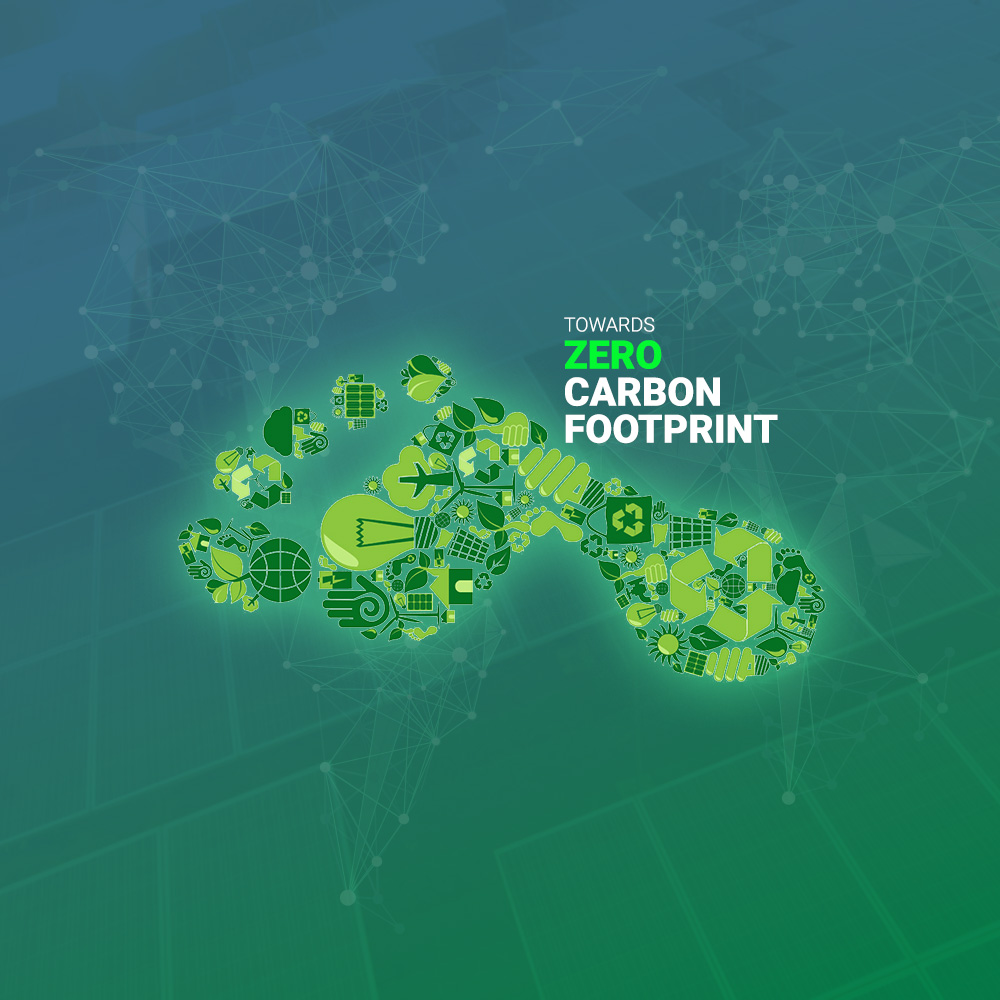The undeniable truth about climate change is becoming more noticeable lately, affecting places from India to Iceland. People like citizens, farmers, tourists, and business leaders can see the climate crisis happening right before their eyes.
Projections for 2023 indicate a global average CO2 concentration reaching 419.2 ppm, a level unprecedented in over 3 million years, leading to rising sea levels and unparalleled environmental transformations. Setting a record high, the global surface temperature from January to October reached 1.13°C above the 1901–2000 average of 14.1°C.
As the urgency of addressing climate change becomes more apparent, businesses are increasingly recognizing the imperative to not only minimise their carbon footprints but to strive for a state of equilibrium — Net Zero.
Net Zero refers to the state in which the amount of greenhouse gases emitted into the atmosphere is balanced by an equivalent amount removed, resulting in a net-zero impact on climate change. The timeline for achieving Net Zero can vary for different regions, organisations, and countries. Some aim for Net Zero by 2050 or earlier, aligning with global climate goals, while others set more immediate targets.
Striving for Net Zero is a formidable task, entailing numerous challenges and necessitating a shift in mindset. Moreover, the acknowledgment of climate change as a significant issue remains elusive in many countries. The International Energy Agency estimates that approximately $4.6 trillion annually will need to be invested by 2030 to facilitate the green transition and achieve the goal of net zero by 2050.
The main hurdles are –
- Technological Innovation: Developing and implementing advanced technologies for renewable energy, carbon capture, and sustainable practices is a key challenge on the path to achieving Net Zero.
- Economic Transition: The transition to a Net Zero economy requires significant investments, potentially impacting industries reliant on fossil fuels and necessitating careful management of economic implications.
- Policy Alignment: Inconsistent or insufficient policies and regulations pose a challenge, highlighting the need for clear, supportive government policies that facilitate and drive the transition to Net Zero.
- Global Collaboration: Achieving Net Zero is a global endeavour, and disparities in economic development and priorities among nations can impede collective efforts. Global cooperation is crucial for success.
- Public Engagement: Overcoming resistance or apathy towards changes in lifestyle and consumption patterns is a challenge. Increasing public awareness and fostering a sense of responsibility are essential for widespread adoption of sustainable practices.
Despite challenges, the global push for net-zero goals is rapidly gaining momentum. One hundred forty countries, including major economies like China, the United States, India, and the European Union, responsible for nearly 80% of global emissions, have embraced net-zero targets. In the Race to Zero, over 9,000 companies, 1,000 cities, 1,000 educational institutions, and 600 financial institutions have pledged immediate action to halve global emissions by 2030.
Numerous businesses are leading the way to Net Zero, with industry giants such as Google, Microsoft, and Unilever setting ambitious examples. These companies not only commit to achieving Net Zero but also provide detailed road maps and timelines for their endeavours. Google, for instance, aims to operate on 24/7 carbon-free energy by 2030.In the pursuit of sustainability, businesses can adopt strategies like energy-efficient technologies, optimised supply chains, renewable energy sources, and sustainable practices.
India is emerging as a significant contender in the race towards a sustainable future. As per the recent International Energy Agency (IEA) report, India is projected to achieve an installed renewable energy capacity of 174 GW by 2023, constituting approximately 37% of the nation’s total energy supply. The report highlights India’s surpassing of its 175 GW renewable energy capacity target for 2022 and anticipates a further increase to 280 GW by 2025.
Uneverse partners with India on its net-zero journey, addressing challenges like grid integration with innovative sodium-ion energy storage solutions. Together, we aim to create a greener world for current and future generations. Will you join hands with us on this journey towards establishing net zero?

